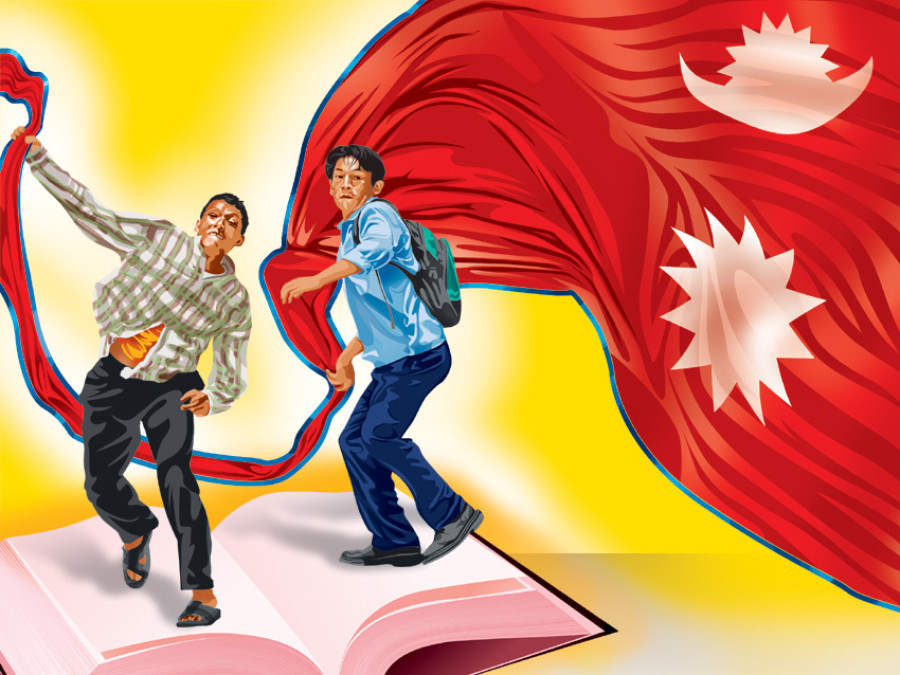Opinion
Time’s a-wasting
If Madhesi and Tharu grievances are not addressed soon, radical forces will move in
Randhir Chaudhary
Nepal has witnessed some positive developments in recent weeks. Prime Minister KP Sharma Oli had the chance to claim that he stuck to his word as he had been saying that he would visit India only if the blockade ended, and it was dramatically lifted in the first week of February. Unlike on previous occasions, cadres of the Samyukta Loktantrik Madhesi Morcha (SLMM) did not pitch tents to block the Birgunj entry point through which 70 percent of Nepal’s imports enter. The major parties amended some provisions in the Constitution which CPN-UML leaders have been claiming is the best in the world. The government has formed a political mechanism under the leadership of Deputy Prime Minister and Foreign Minister Kamal Thapa. Although it has been set up to address the Madhes movement, the SLMM has rejected it. As a result, the new statute has been caught between unresolved Madhesi issues and Kathmandu’s rigidity.
Winning confidence
The way the political mechanism has been formed, it shows that the Oli administration did it only to make his India visit possible because the southern neighbour wanted the four-point roadmap to be implemented first. The aim of the mechanism should be to sort out provincial boundary issues. It should work to win the confidence of the agitating forces, but this has not happened. Constitutional expert and advocate Dipendra Jha said, “I have not seen any mechanism formed without any terms of reference (ToR). Now who will write the ToR? Does it sound right that one should define one’s own jurisdiction?” This powerful mechanism has blocked the ongoing negotiations between the government and the SLMM.
The SLMM’s recent declaration of a lull in the movement has brought a feeling of relief in the Capital and other parts of the country as essential goods have reappeared in the market after the end of the blockade. But the mood in the Madhes is not that positive. Some people think that they should pressurise the SLMM leaders to launch an even stronger agitation. CPN (Maoist) coordinator Matrika Yadav has declared that his alliance will now lead the protest. Saroj Mishra, the president of the Madhesi Adhikar Sangharsa Samiti (MASS), said that they would protest until their rights were assured in the Constitution.
Although the leaders of the ruling parties have been saying that the new Constitution has paved the way for the country’s overall development, peace and stability in the country will remain a mirage until the grievances of the Madhesis, Janajatis and other marginalised communities are dealt with.
Despite knowing all these things, why are Nepali leaders reluctant to eradicate the issues which have bred conflict in the past? If Madhesi and Tharu grievances are not addressed soon, it will benefit the radical forces in the Tarai who are waiting in the wings. If the moderate forces should fail, it will lead to chaos in the southern plains.
Although the major parties had said that they would try to bring the agitating SLMM on board the process to forge a consensus on constitutional issues, the constitution was promulgated without its consent.
Conflict-free epoch
It should be the responsibility of all the political parties to adopt an accommodative approach for the betterment of the country. First, the major political parties have to be serious when taking any decision that has national implications. Until and unless the genuine demands of Madhes are addressed in the Constitution, shutdowns, strikes and road blockades will continue to affect the life in the Tarai region because many youths were ready to fight for Madhesi rights during the four-month-long agitation. Madhesi youths waved black flags at Prime Minister Oli during his visit to Delhi, which shows that they are prepared to take up the challenge to empower their community. Second, the government should not form a mechanism just to show the international community that they are doing something. Third, the major parties need to play a major role in foiling the radical groups in the Tarai by taking the moderate forces into confidence instead of using violence against them.
It would be wise for the major parties to express their commitment to settle the boundary question on the lines of the report presented by the erstwhile State Restructuring Commission and the Thematic Committee of the first Constituent Assembly. These reports have basically recommended forming two provinces in the Madhes. Similarly, the Madhes-centric parties have to assure the Madhesi people that they will not abandon their crusade or repeat past mistakes. If the moderate Madhesi forces can do that, they can prevent the Madhesi youths from becoming radicalised, and Nepal would move towards a conflict-free epoch.
Chaudhary is associated with Terai Human Rights Defenders Alliance




 14.12°C Kathmandu
14.12°C Kathmandu










